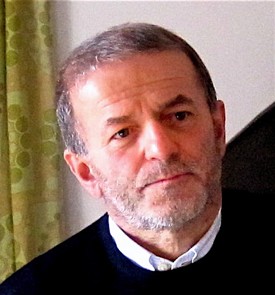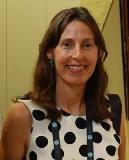Studying at the University of Verona
Here you can find information on the organisational aspects of the Programme, lecture timetables, learning activities and useful contact details for your time at the University, from enrolment to graduation.
Academic calendar
The academic calendar shows the deadlines and scheduled events that are relevant to students, teaching and technical-administrative staff of the University. Public holidays and University closures are also indicated. The academic year normally begins on 1 October each year and ends on 30 September of the following year.
Course calendar
The Academic Calendar sets out the degree programme lecture and exam timetables, as well as the relevant university closure dates..
| Period | From | To |
|---|---|---|
| I sem. | Oct 2, 2017 | Jan 31, 2018 |
| II sem. | Mar 1, 2018 | Jun 15, 2018 |
| Session | From | To |
|---|---|---|
| Sessione invernale d'esame | Feb 1, 2018 | Feb 28, 2018 |
| Sessione estiva d'esame | Jun 18, 2018 | Jul 31, 2018 |
| Sessione autunnale d'esame | Sep 3, 2018 | Sep 28, 2018 |
| Session | From | To |
|---|---|---|
| Sessione di laurea estiva | Jul 12, 2018 | Jul 12, 2018 |
| Sessione autunnale di laurea | Oct 19, 2018 | Oct 19, 2018 |
| Sessione di laurea invernale | Mar 14, 2019 | Mar 14, 2019 |
| Period | From | To |
|---|---|---|
| Christmas break | Dec 22, 2017 | Jan 7, 2018 |
| Easter break | Mar 30, 2018 | Apr 3, 2018 |
| Patron Saint Day | May 21, 2018 | May 21, 2018 |
| VACANZE ESTIVE | Aug 6, 2018 | Aug 19, 2018 |
Exam calendar
Exam dates and rounds are managed by the relevant Science and Engineering Teaching and Student Services Unit.
To view all the exam sessions available, please use the Exam dashboard on ESSE3.
If you forgot your login details or have problems logging in, please contact the relevant IT HelpDesk, or check the login details recovery web page.
Should you have any doubts or questions, please check the Enrollment FAQs
Academic staff

Vallini Giovanni
 giovanni.vallini@univr.it
giovanni.vallini@univr.it
 045 802 7098; studio dottorandi: 045 802 7095
045 802 7098; studio dottorandi: 045 802 7095
 riccardo.velasco@univr.it
riccardo.velasco@univr.it
Study Plan
The Study Plan includes all modules, teaching and learning activities that each student will need to undertake during their time at the University.
Please select your Study Plan based on your enrollment year.
1° Year
| Modules | Credits | TAF | SSD |
|---|
2° Year activated in the A.Y. 2018/2019
| Modules | Credits | TAF | SSD |
|---|
| Modules | Credits | TAF | SSD |
|---|
| Modules | Credits | TAF | SSD |
|---|
Legend | Type of training activity (TTA)
TAF (Type of Educational Activity) All courses and activities are classified into different types of educational activities, indicated by a letter.
Microbial biotechnologies (2017/2018)
Teaching code
4S02764
Teacher
Coordinator
Credits
6
Language
Italian
Scientific Disciplinary Sector (SSD)
AGR/16 - AGRICULTURAL MICROBIOLOGY
Period
II sem. dal Mar 1, 2018 al Jun 15, 2018.
Learning outcomes
This Course is designed to analyze both theoretical bases and criteria for the application of microbial systems to the production of compounds of economic interest, the recovery and production of energy from biomass or organic by-products and residues, the treatment of waste, and the environmental bioremediation. Based on the wealth of cognitions acquired while attending previous classes of microbiology content, students will address issues dealing with the properties of microorganisms, both prokaryotes and eukaryotes, including bacteria, archaebacteria, yeasts, filamentous fungi and - in a distinct position because of their non-cell structure – viruses, with reference to their potential technological exploitation. Microorganisms will mainly be considered as biological catalysts with specific biosynthetic properties and/or possible ability to carry out transformation/degradation reactions either in confined environments (bioreactors) or in open contexts. Discussion will focus on the procedures aimed at controlling and optimizing the bioprocesses of interest.
Program
SYLLABUS – 1. Back references to microbial diversity and taxonomy ; 2. Biocatalysts in organic chemical synthesis ; 3. SCP (single cell protein) production with bacteria ; 4. Yeasts and unicellular algae for SCP production ; 5. Production of organic acids with particular emphasis to citric acid ; 6. Enzymes of microbial origin ; 7. Microbial polysaccharides e polyesters ; 8. Microbial degradation of biopolymers: starch, cellulose and lignin ; 9. Microbial production of amino acids ; 10. Microbial transformation of lipids and sterols ; 11. Microbial degradation of xenobiotic compounds in both aerobic and anaerobic conditions ; 12. Microbiology of wastewater depuration ; 13. Principles of composting ; 14. Anaerobic digestion of biomass ; 15. Bioleaching and biomining for the recovery of metals; 16. Industrial production of edible mushrooms; 17. Exercises for the estimation of both efficiency of microbial growth and product formation within industrial fermentations.
SUGGESTED TEXTBOOKS - Manual of Industrial Microbiology and Biotechnology (3rd Edition) – 2010 Richard H. Baltz, Julian E. Davies, Arnold L. Demain ASM Press, ISBN: 978-1-55581-512-7. Microbial Biotechnology - Fundamentals of Applied Microbiology (2nd Edition) – 2007 Alexander N. Blazer, Hiroshi Nikaido Cambridge University Press, ISBN: 978-0-521-84210-5.
| Author | Title | Publishing house | Year | ISBN | Notes |
|---|---|---|---|---|---|
| Michael J. Waites, Neil L. Morgan, John S. Rockey, Gary Higton | Industrial Microbiology: An Introduction (Edizione 1) | Wiley-Blackwell | 2001 | 978-0-632-05307-0 | |
| Alexander N. Glazer, Hiroshi Nikaido | Microbial Biotechnology - Fundamentals of Applied Microbiology (Edizione 2) | Cambridge University Press | 2007 | 9780521842105 |
Examination Methods
Final profit verification by written examination. The test consists of submitting to the student a multi-page form containing a number of questions ranging from 20 to 25, structured as single-textbox questions, multiple-choice questions, calculation exercises, request of short comments and descriptions. Each question is given a different weight in points. The rating is in thirtieths, based on the percentage of points matched with the correct answers.
Type D and Type F activities
Modules not yet included
Career prospects
Module/Programme news
News for students
There you will find information, resources and services useful during your time at the University (Student’s exam record, your study plan on ESSE3, Distance Learning courses, university email account, office forms, administrative procedures, etc.). You can log into MyUnivr with your GIA login details: only in this way will you be able to receive notification of all the notices from your teachers and your secretariat via email and soon also via the Univr app.
Graduation
Deadlines and administrative fulfilments
For deadlines, administrative fulfilments and notices on graduation sessions, please refer to the Graduation Sessions - Science and Engineering service.
Need to activate a thesis internship
For thesis-related internships, it is not always necessary to activate an internship through the Internship Office. For further information, please consult the dedicated document, which can be found in the 'Documents' section of the Internships and work orientation - Science e Engineering service.
Final examination regulations
List of theses and work experience proposals
| theses proposals | Research area |
|---|---|
| Dinamiche della metilazione del DNA e loro contributo durante il processo di maturazione della bacca di vite. | Various topics |
| Miglioramento del profilo nutrizionale e funzionale di sfarinati di cereali mediante fermentazione con batteri lattici | Various topics |
| Risposte trascrittomiche a sollecitazioni ambientali in vite | Various topics |
| Studio delle basi genomico-funzionali del processo di embriogenesi somatica in vite | Various topics |
Attendance
As stated in the Teaching Regulations for the A.Y. 2022/2023, attendance is not mandatory. However, professors may require students to attend lectures for a minimum of hours in order to be able to take the module exam, in which case the methods that will be used to check attendance will be explained at the beginning of the module.















